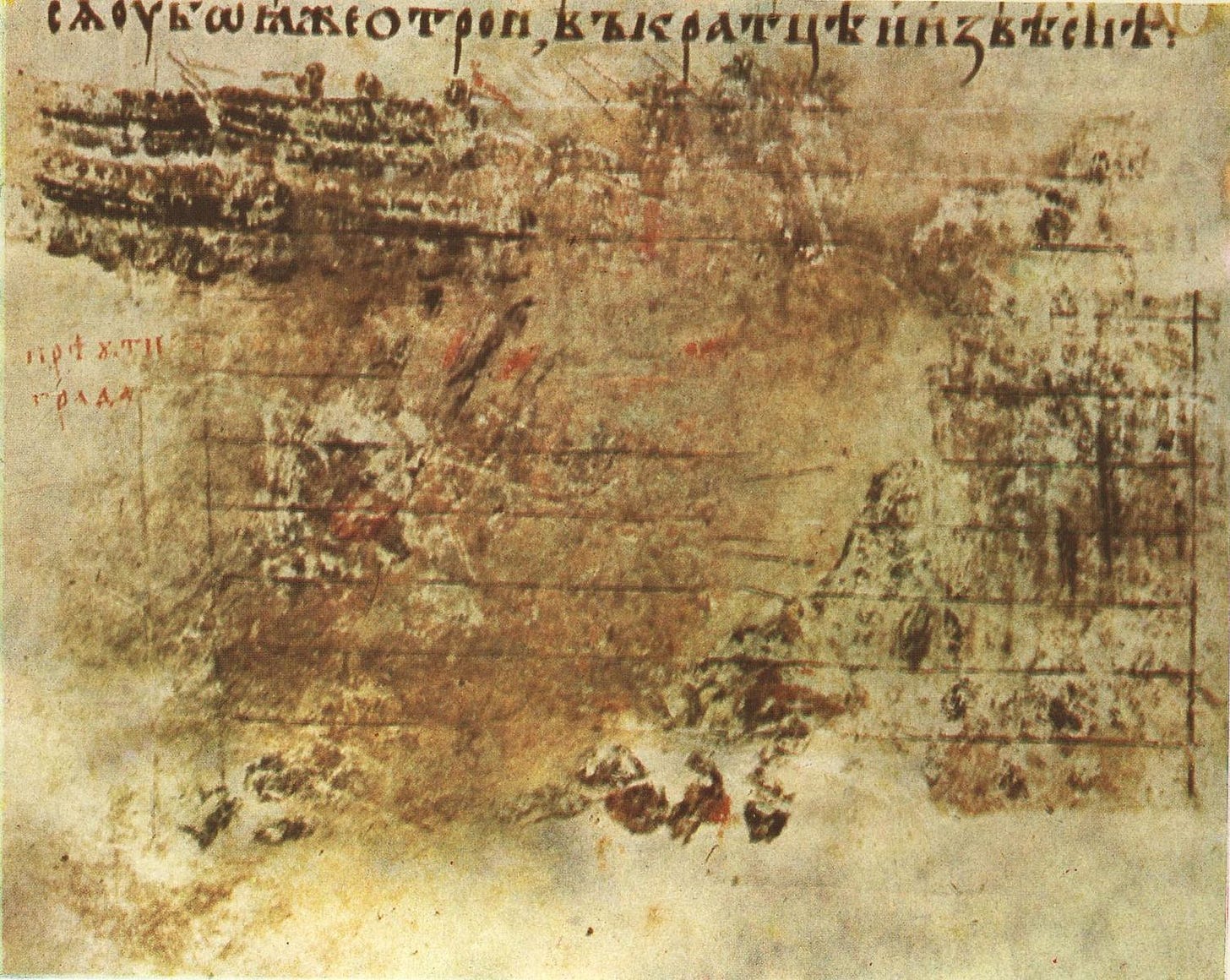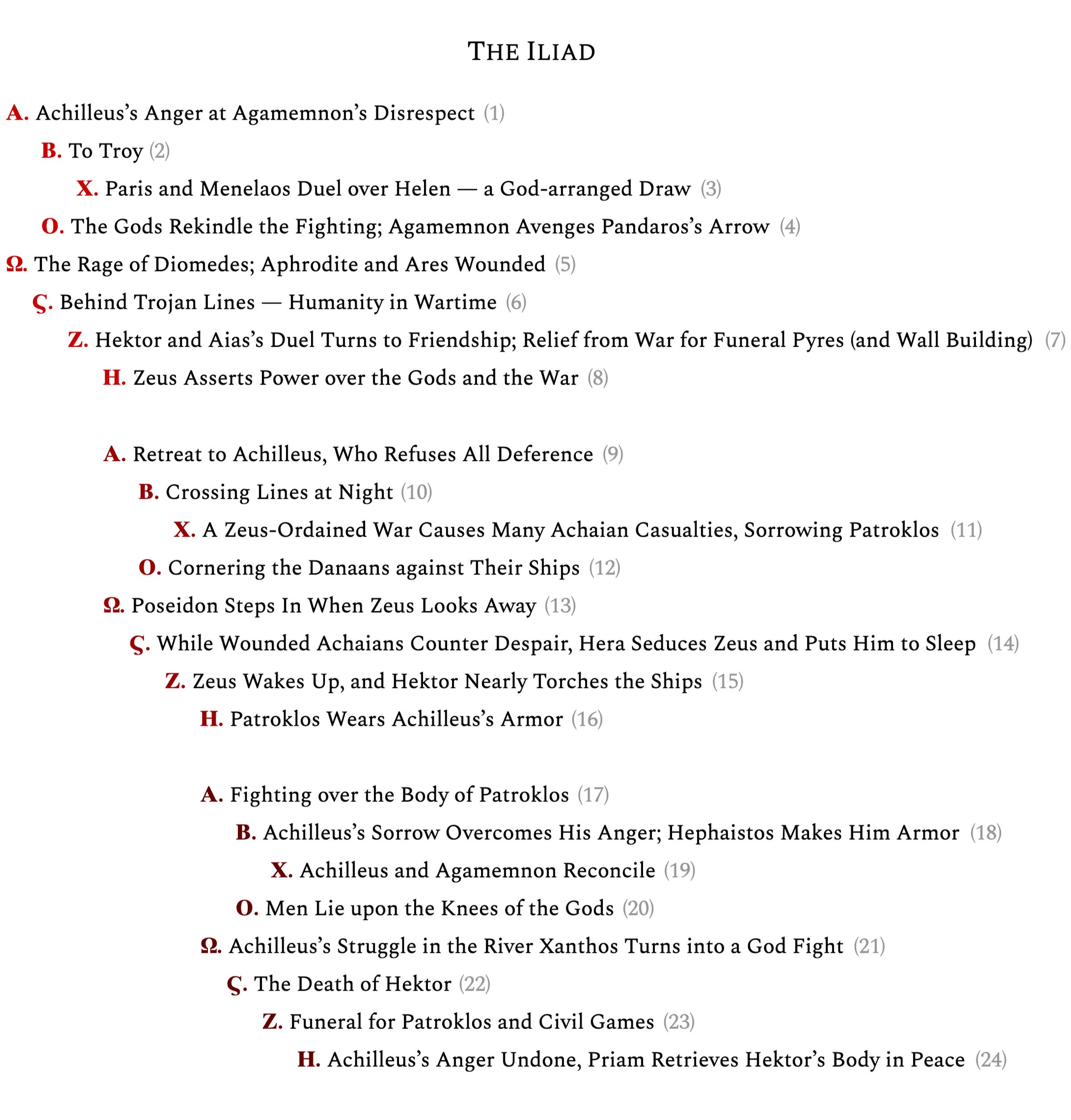Just a heads up to my free subscribers:
This is one of my paid-subscription posts on account of it being a draft for a book I’m working on, but when I send these out to the whole list, I am mindful not to spam your inbox with something you can’t get anything out of. What I do is hold back the paywall line in the article until I’ve given you at least a little something that I think you’ll find interesting. Nate Silver does this for the Silver Bulletin, and as a free subscriber of his, I appreciate reading what he gives me and don’t sweat what I’m missing. I’m aiming for the same consideration towards you.
This is my third such post for paid subscribers after turning on paid subscriptions six weeks ago. I plan not to do them consecutively so that I continue serving my larger audience of free subscribers. I hope that once I bank enough posts behind the paywall, though, that some of you free subscribers would consider getting a month’s subscription, throwing eight bucks my way, and going back to read what you’ve missed. I would not in the least be offended to see paid subscriptions canceled after a single month’s payment, though I certainly hope such readers stick around still for the free stuff they’ve always been getting. I want you all to know I greatly appreciate your readership whether you’re paying or not, and no one should hesitate to ask me for any customer service regarding subscriptions.
Now, on to The Iliad. First, see my Homer introduction.
Note on the spelling of Greek names: Rather than pick rules of transliteration, I’m just going with what’s in my favored translation of The Iliad, which is by Richmond Lattimore (The University of Chicago Press, 1951). The results are orthographically a little chaotic, but that seems appropriate enough for the English language.

First Octave
Α. (1) Achilleus’s Anger at Agamemnon’s Disrespect
The Iliad is not a creation myth, so the first book is not about the genesis of creation. The first book is, however, about the genesis of what The Iliad is about, which is the rage of Achilleus. Any primer on Homer’s Iliad will tell you that it isn’t about the Trojan War, not exactly, but is merely set during the Trojan War; it begins years after the start of fighting, and finishes with the ending of the war yet to happen. The entry into the war of Queen Penthesilea of the Amazons, Achilleus’s legendary death by heel wound, Odysseus’s sacrilegious wooden horse gambit — The Iliad never gets to any of that. The epic poem rather begins with the incitement of Achilleus’s rage, and ends with its assuagement. All the action in between, even when he is not mentioned, is only made possible by his absence from fighting. The period of time when Achilleus breaks with the Achaian army out of anger and keeps out of the Trojan War: that is what the story is about.
The god Apollo, worshiped by the Trojans, sends a plague on the Achaian army on account of their king Agamemnon’s refusal to return a Trojan priest’s daughter whom he has taken prisoner for himself. After nine days of plague — rhyming with the nine years of war they have had thus far, war initiated by the theft of a woman (hence typologically we are hearing the genesis of the Trojan War) — Achilleus, son of a heroic king father and a prized sea nymph goddess mother, currently the greatest warrior among the Achaians, calls an assembly. To end the plague he convinces King Agamemnon to return the priest’s daughter. Unable to bear the dishonor without compensation, Agamemnon demands possession of Achilleus’s prized captive, the beautiful Briseis, whom he had won to himself for having sacked her city. This exchange, forcefully carried out, brings an end to Apollo’s plague, but offends Achilleus catastrophically. He thenceforward refuses to fight for King Agamemnon, both he and his tribal forces sitting out the war.
The rage of Achilleus begins. Ironically his rage entails not fighting in a war. Such is the dialectical tension upon which Homeric catharsis is built. The pattern of this tension is found also among the gods, as Achilleus’s sea nymph mother Thetis pleads Zeus’s favor for her dishonored son, only to hear Zeus complain that her pleas set him at cross purposes with his sister-wife Hera, who advocates for the Achaians against the Trojans. The book ends with the Olympian gods all feasting on nectar and laughing to sweet music, after which Zeus retreats to bed for sleep with Hera at his side, a static image of the source of all creativity and power, both demiurgic and poetic.
Β. (2) To Troy
The second book plays with various types of duplicity, double-mindedness, and bifurcation. On Mount Olympos, Zeus, unable to sleep, figures to solve his quandary governing the cross purposes of his Olympian subjects by sending the god Dream to King Agamemnon. Dream, in the guise of Nestor (elder counselor of the Achaians), is to convince the king to go fight Troy, falsely leading him to believe that according to an Olympian consensus, he will sack it straightway. Agamemnon wakes and gathers all the Achaian princes to recite his dream and report his belief in it, but says that he will test his troops by telling them the opposite, that he doesn’t believe in it. The real Nestor confirms that the dream, which would not be trustworthy had it been given to any other Achaian, yet must be true if it were given to Agamemnon — another layer of false counsel wrapped up in truth. (Politics, right?)
Agamemnon has the whole army gathered and tells them convincingly that Zeus has devised a vile deception, encouraging them to go to war so that they’ll be destroyed and dishonored. He concludes that since Zeus is a liar, the gods must no longer favor them taking Troy, and thus they should all pack up and sail back to their homes and families. The people are persuaded and set about to do just that. Hera then puts Athene to work inspiring Odysseus to turn the people’s will back towards taking Troy, which he begins to do. Thersites, a man reviled among the Achaians, gives counsel to the contrary, encouraging the people to abandon Agamemnon as he who selfishly offended the superior Achilleus, and to be content with their material gains, not desiring to take foreign women for themselves but retreating to their own homes in peace. Odysseus violently thrashes this man Thersites, making him and his rebellion an object of ridicule. All these events dramatize the doubts in the hearts of the Achaians, their double-mindedness about going to war, their simultaneous dependence on and distrust in the gods, particularly Zeus. But it’s clear which way the story will go, what tragedy will descend from the duplicity.
In the story of Genesis, the first beta-section recounts the fall of Adam and Eve, deceived by a serpent to eat the fruit of a forbidden tree. Here, to persuade the Achaians to choose war, Odysseus recounts the prophetic vision of Kalchas (an Achaian augur), of how he saw under a fair plane tree appear, sent by the gods, a horrible black snake. In the tree there were eight baby sparrows, and the mother was the ninth. The snake devoured the eight babies and then the mother, the babies signifying the first eight years of war, this latest ninth year being the mother of them all. Once it is devoured, in the tenth year the Achaians will be victorious. Thus Odysseus speaks, and then Nestor further encourages the Achaians, “Therefore let no man be urgent to take the way homeward / until after he has lain in bed with the wife of a Trojan / to avenge Helen’s longing to escape and her lamentations” (II.354–56). Finally Agamemnon speaks, finishing the dialectical ruse and accepting Nestor’s counsel. This army of heroic rapists will heed the prophecy of the snake and go forward to Troy like a wave blown by the winds and crashing on a cliff. As sacrifices are prepared, Agamemnon makes a public prayer to Zeus, asking that the sun not go down until he has toppled the Trojan king Priam’s castle and killed his son Hektor, commander of the Trojan army. He thinks he’s actually going to do it in a day. “He spoke,” the poem responds to Agamemnon’s prayer, “but none of this would the son of Kronos [Zeus] accomplish, / who accepted the victims [the sacrificed animals], but piled up the unwished-for hardships” (II.419–20).
In the first book, the human conflict occurred within one people, the Achaians. Now in the second book the conflict descends into duality, so as to occur between the Achaians and the Trojans. At length, the various forces of the two sides of the war are listed, naming the leaders and whom they lead, first the many on the Achaian side, then the far fewer on the Trojan side. The lines of battle are set.
Χ. (3) Paris and Menelaos Duel over Helen — a God-arranged Draw
In the Book of Genesis, the first chi-section (ch. 4) introduces sexual reproduction and death (by way of fratricide) in tandem. Indeed as any artist will tell you (this is no secret of theology), sex and death go hand in hand as, respectively, the beginning and ending of life. What begins in pleasure ends in pain because according to our corrupted mode of existence exiled from Paradise, the two are inextricably bound to each other like two poles of the same axis. Already the prospect of mortality required Adam and Eve to engage in sexual reproduction for the perpetuation of humanity. Sex conditioned by mortality breeds lives prone to mortality. It’s all according to this cursed maelstrom of pleasure and pain to which we are subject when we disconnect from God. In the cosmic chiasmus, this maelstrom constitutes chi-imagery because it is in this setting of human disconnect from God that Christ both is born of a Virgin and survives fratricide by the Resurrection, undoing the curse of the fall into the pit of pleasure and pain by means of one economic parabola not only realigning the human with the divine but uniting the two in His Person. (Hence the corrupt modes of sex and death are transformed for His followers into vehicles of spiritual purity and everlasting life.)
Amazingly, Homer seems to get this typology, even if it’s only the fallen half, not the redemptive part. Where and how he gets it (cosmic vision of the natural law? Israelite influence?) I cannot say. I can only say what I see in the shape of The Iliad. Book Three brings to the minds of the listeners the backstory of the Trojan War by way of cycling back to the main actors responsible for starting it. All the pain and death of this violence has at its root the envy of certain gods matched with the sexual conquest of men. As the Achaian and Trojan forces meet on the battlefield outside Troy, immediately Paris of the Trojans (more commonly known in The Iliad by his other name Alexandros) steps forward for a confrontation, and Menelaos of the Achaians, brother of King Agamemnon and rightful husband of the most beautiful mortal woman in the world Helen of Sparta — whom Paris has stolen — eagerly steps forward to meet him.
Keep reading with a 7-day free trial
Subscribe to The Cormac Jones Journal to keep reading this post and get 7 days of free access to the full post archives.




